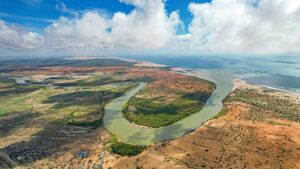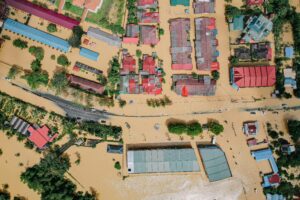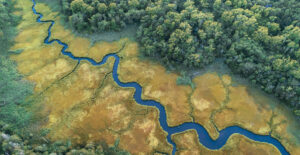Water a Success Factor for Implementing the Paris Agreement
The AGWA policy group, coordinated by SIWI, has developed policy recommendations on how water can inform the implementation of the Paris Agreement, illustrated through its role in the NDCs.
One of the keys to fulfill the goals set in the Paris Agreement will be wise water management. Water was on the agenda at the UN Climate Change Conference in Marrakesh (COP22), and its key role in strengthening resilience to climate change cannot be overstated. The role of water holds great potential for synergies in adaptation and mitigation, as illustrated in the priorities outlined in the national climate plans. In this policy brief, developed by members of the AGWA policy group, recommendations on how water can inform the implementation of the Paris Agreement, illustrated through its role in the Nationally Determined Contributions (NDCs) are presented.
Key outputs
- The years leading up to 2020, when the Paris Agreement enters into force, will be essential to gaining and maintaining momentum, securing trust among Parties to the Convention, and ensuring that global pledges adequately fund the adaptation and mitigation measures outlined in the Nationally Determined Contributions (NDCs).
- Almost all the NDCs identify water as a central component of their adaptation work and some also link water to the provision of sustainable energy.
- Non-state actors such as city mayors, private companies, NGOs, research institutes and development banks are key to support the implementation of the NDC strategies and programmes, gathering and sharing information, raising awareness, as well as mobilizing support to vulnerable communities.
- Climate change has put severe pressure on Pacific Island Nations, causing losses and damages to land, water resources and biodiversity. The NDCs illustrate that the island states in the South Pacific have ongoing adaptation projects to help increase resilience to the impacts of climate change at the global, regional and national levels.
- Sound water management will maintain the right balance between providing carbon neutral energies while ensuring water security for agriculture, industries and cities. In addition, there are also good examples of complimentary strategies in urban water management.
- Water should be recognized as a key dimension for climate mitigation.
- In a carbon neutral future, all possible mitigation measures will have to be implemented including improving energy efficiencies, reducing water loss, improving source protection, harvesting rainwater, transforming wastewater treatment plants into resource recovery and energy production facilities, and reusing treated effluent for irrigation.
- Wastewater treatment offers an opportunity to cut carbon and energy costs. About 80 per cent of the world’s wastewater is discharged into nature untreated. Carbon emissions from untreated sewage are three times the emissions of conventional energy-intensive wastewater treatments.
- While the balance between adaptation and mitigation priorities in the allocation of climate funds is improving, sources for adaptation especially are insufficient and do not adequately target the needs of those populations most vulnerable to climate change.
- For the most vulnerable countries to access climate finance it is critical to strengthen the dialogue with donors as well as their capacity to source, manage and apply the climate funds.



